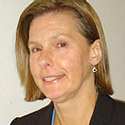04:16 PM
New Council Formed To Promote Adoption Of Smart Cards By Health-Care Sector
In an effort to build momentum for the use of smart-card technologies in the health-care sector, the Smart Card Alliance has formed a health-care council.
The health-care council is one of several recently formed vertical-market or technology councils formed by the Smart Card Alliance, a nonprofit, multi-industry association promoting the adoption of smart-card technologies. Two other recent councils launched by the alliance are a physical-access council and a transportation-industry council. The health-care council brings together representatives from health-care payers, technologists, and providers.
There are a number of potential uses for smart cards in the health-care industry, including secure transactions that verify insurance coverage and benefit eligibility for individuals, as well as their identity, says Neville Pattinson, director of business development at Axalto Inc., a provider of smart-card technology and a member of the alliance. Last year, Axalto provided 2 million smart cards embedded with "smart chips" to citizens of Puerto Rico as part of a program to help improve verification of benefits eligibility of patients seeking medical care, Pattinson says.
Randy Vanderhoof, executive director of the Smart Card Alliance, says smart cards improve the security of health-care-related transactions because they provide an "electronic signature" that binds an individual to a document. For instance, if a patient is seeking health care, he or she could present a smart card that requires a personal identification number to be typed in before the benefits-eligibility information can be accessed by a provider employee, who could also use a smart card to verify his or her identity before gaining access to patient information.
In such health-care applications, smart cards can provide an extra level of security as well as potentially eliminate claims fraud, Vanderhoof says.
First on the list of goals for the health-care council is to prepare by the end of the summer a report highlighting the use of smart cards in the health sector, Vanderhoof says.
Members of the new council include individuals involved in smart-card deployments or developments. The co-council chairs are Frank Avignone of Healthmeans and Paul Davis of Uniliance Health. Other council members are David Asay of IBM; Linda Brown of Infineon Technologies; Michael Cariou of Oberthur Card Systems; Bob Coogan of Wisconsin Physicians Service Insurance; Jeffrey Ross of Gemplus; Greg Thornton of Competech Smart Card Solutions; and Terry Zagar of Northrop Grumman.
Despite the smart-card momentum the council will attempt to build in the health-care sector, not everyone will be an easy sell.
John Halamka, CIO at Harvard Medical School and CareGroup Health System, which operates several Boston-area hospitals, says a big drawback to smart cards is the retrofitting that's needed by PCs to read the cards.
"I have 16,000 PCs and none has a smart-card reader," he says. That means each of those PCs would need to be adapted, Halamka says in an E-mail interview.
CareGroup is taking a different approach in its strategy for electronically accessing and sharing patient information. "We believe that having records available via secure clinical data exchange gateways on the Web is the right approach," Halamka says. "Gateways, which interconnect existing hospital information systems, ensure that data is protected, audited, and always available."
Marianne Kolbasuk McGee is a former editor for InformationWeek. View Full Bio



























